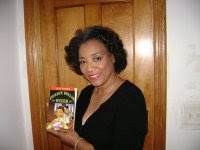The word "recovery" has a variety of meanings, depending on which industry you're in. For me as a former data processing professional, the word means a computer system that has gone awry and now I need to recover data. To the hip-hop world, "Recovery" is the title of Eminem's latest CD. To an economist, "recovery" is what our economy needs for us to go on successfully.
So when I got an invitation to go to Loretto Hospital to be a guest at their sixth annual "recovery month" program celebration, my curiosity was piqued. Loretto Hospital is another gem in Austin that is often overlooked. Located at Congress and Central avenues, its status as a hospital is not often on people's radar in an emergency. It is not a Level One trauma center or a hospital that handles births.
But September is national Alcohol and Drug Addition Recovery Month, and Loretto Hospital has positioned itself to be at the forefront in that field, servicing adults 18 and older. The program I attended may have been the sixth annual celebration, but Loretto proper has been in the business of dealing with "recovery" for over 40 years, including the last 25 years during the "crack" epidemic.
What are the current top drugs of choice? Well, they're no longer cocaine or marijuana. The old standby, alcohol, still reigns supreme, followed closely by heroin, the current substance of choice. Those are the two main areas where Loretto has opted to put its focus.
Loretto has allocated 44 beds to its recovery program. It has succeeded as a program because of word of mouth, networking, and recommendations from various agencies. The patients coming to Loretto's Substance Abuse Services Program range from here on the West Side to as far away as Rockford.
Loretto Hospital has four levels of treatment available. They have an in-patient detox program that can last 3-5 days, depending on the severity of the dependency. They offer Residential Rehab, which involves partial hospitalization. That program can last from 17-28 days. The Intensive Outpatient service lasts five days, three hours a day and includes 75 hours of outpatient services. Lastly, Adult Aftercare is done on an outpatient basis for 25 hours.
Other services available include DUI Evaluation Services, Compulsive Gambling Assessment and Education, Family HIV Support Program, Comprehensive Family Education Program, Active Alumni Group and open self-help groups, (Alcohol Anonymous, Narcotic Anonymous and ALANON, as well as others). Many of the treatment services can be paid for by Medicaid, Medicare or private insurance. But lack of money shouldn't be an impetus to not seek help. If you or someone you know needs "recovery," call the hospital at 773-854-5445 to speak with a certified addiction counselor who can assess each individual's needs.
The 6th Annual National Recovery Month celebration that I attended on Sept. 21 had as its theme, "Join the Voices of Recovery: Now More Than Ever." And that is just what happened. It was a very inspirational program, and I was grateful to newly installed addiction service coordinator, Michael Applegate, for reaching out to invite me. The audience was packed with many of the graduates of the recovery program. We heard from Congressman Danny Davis who spoke on behalf of his annual Walk for Recovery event.
Also, we heard from Edith Ozark, clinical supervisor, who spoke on the subject of relapse. It was refreshingly honest to hear those in the recovery business admit that the road will be hard and lapses will occur, but the program and the people committed to it will be there to support those in the recovery movement if they stumble.
I got to hear several testimonials from alumni in the recovery community. Their passionate pride in contrasting where they came from to where they are now was evident in their voices. They were supplemented by the newly graduated recovery members who had gone down the same road.
The keynote speaker, "Kwesi" Ronald E. Harris, director of the African American Male Resource Center at Chicago State University, gave a motivational speech that had everyone on their feet clapping. It was a positive and inspirational message that one need not be in "recovery" to enjoy and absorb.
You Finished The Book - Now What Did You Think
13 years ago

No comments:
Post a Comment